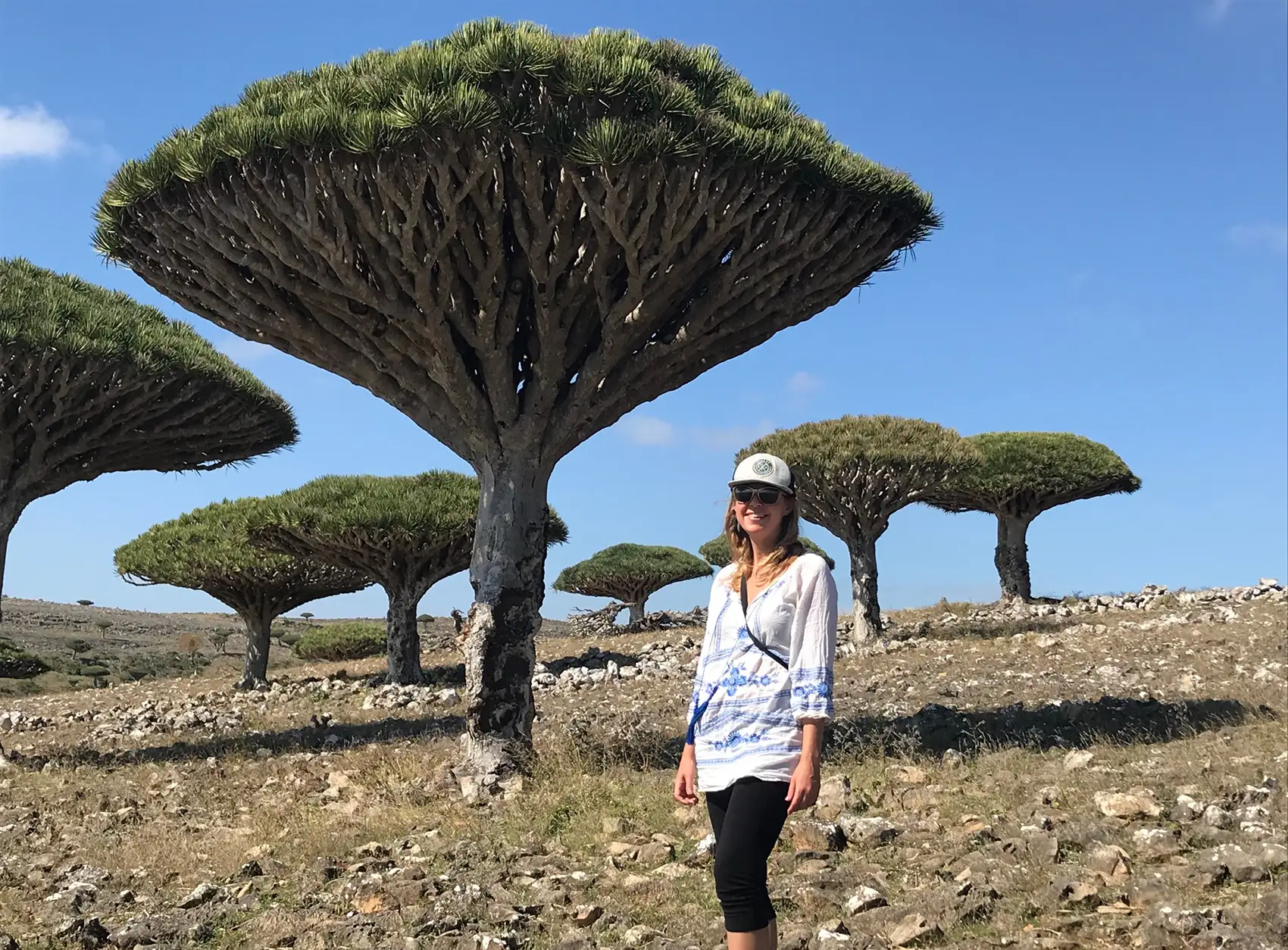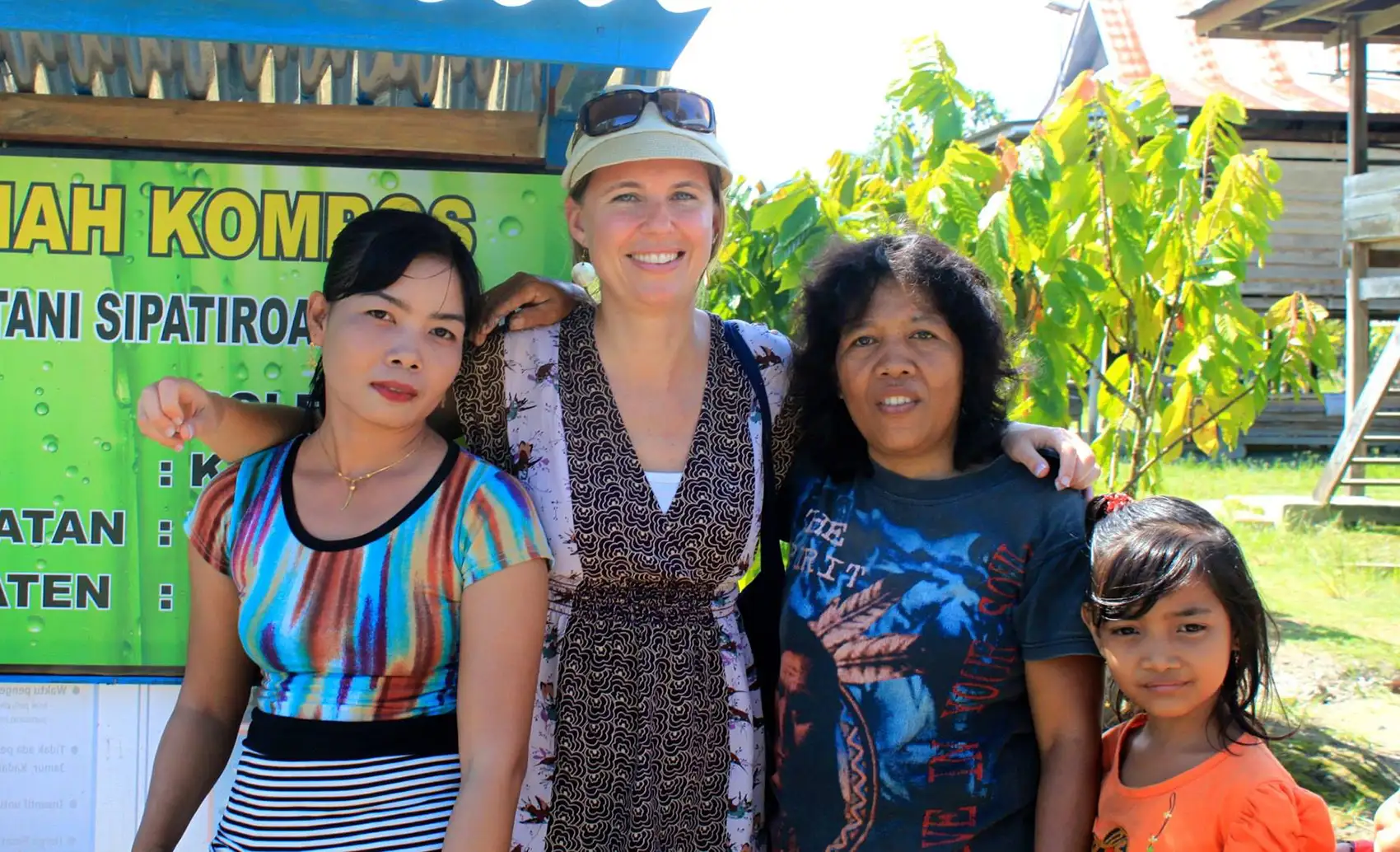Researcher Spotlight: Love of Biology Fuels Kristi Moriarty’s Career at NREL

Kristi Moriarty, a senior vehicle and infrastructure analysis researcher at NREL, is an expert in analyzing the infrastructure, supply chain logistics, materials, regulations, and other elements that facilitate getting advanced fuels from production to end use.
Case in point: During her 16-year lab career, she has contributed to the commercialization of E15 ethanol blend fuels, renewable diesel, and SAF.
“In my previous life, I worked in consulting for financial systems and databases for major utility companies and natural gas trading firms,” Moriarty said. “But the death of a close family member from cancer catalyzed me to change my career to focus on fuels that had less impact on air quality and health.”
She dove into her new field, earning a master's degree in renewable energy systems technology engineering from Loughborough University in England and a graduate diploma in biomass energy from Universidad de Zaragoza in Spain. She also refocused her research on biofuels, which she said are “practical and versatile.”
Moriarty said her interest in biofuels and bioenergy did not surprise her parents, who encouraged her interest in biology and biological processes even as a child.
“I had the opportunity to live in many different places growing up, but my experiences as a young child in the wilds of Florida stand out,” she said. “I remember exploring the trails in the swamp and learning about the trees—and even finding alligator bones.”
She also remembers watching space shuttles take off at the beach at Cape Canaveral and wanting to be an astronaut, too.
“That dream and my current role have come full circle, in a way,” she said. “I’m now working on a project with NASA, along with other NREL researchers and partners, to investigate advanced energy carriers that might be used 50 years onward.”

Learning and Expanding Bioenergy Perspectives
Moriarty is grateful for the opportunity to work on a range of different projects at NREL. While she started out purely working on biofuels for on-road vehicles like automobiles and trucks, she has expanded her focus to include marine fuels and aviation fuels, too.
“I am constantly impressed by the range of skill sets and types of expertise I get to interact with daily,” she said. “There is so much collaboration here, from researchers to support staff, that enhances our work and makes it special.”
Working at the laboratory has also offered her many unique opportunities, Moriarty added. During one memorable project from 2014, funded by the U.S. Department of State, Moriarty started out conducting bioenergy field research in Indonesia, focusing on fuels, before being redirected to work on cacao harvest intensification. As a result, the project allowed Moriarty to engage with Indonesia’s large chocolate industry and analyze programming and agricultural practices to increase cacao yields in the region.
“While not at first sight related to biofuels, the cacao research demonstrated the interconnection of efficient use of land and how many agricultural stakeholders contribute to bioenergy and economy,” Moriarty said.

Transportation Around the World
While Moriarty’s work remains domestic these days, she is a traveler in her free time.
“I’m trying to go to 100 countries, and I’ve hit more than 80 so far,” she said.
Always the transportation researcher, Moriarty likes to observe the different forms of transportation and energy generation she sees on her travels. She is curious about shared private vehicle transportation, but she has been most impressed so far by the high-speed bullet trains in Uzbekistan.
“They were the nicest trains I’ve ever been on, anywhere,” she said.
Her travels feed the sense of exploration and curiosity that has made NREL a great fit for Moriarty as she shares her expertise in biofuels with colleagues and partners.
“I am excited by all the interesting people I get to work with at NREL,” she said. “Working here has given me an opportunity to make a meaningful impact on how we fuel our transportation system.”
Follow NREL's transportation and mobility research and sign up for NREL's Mobility Matters newsletter to stay current on the latest news.
Last Updated May 28, 2025
